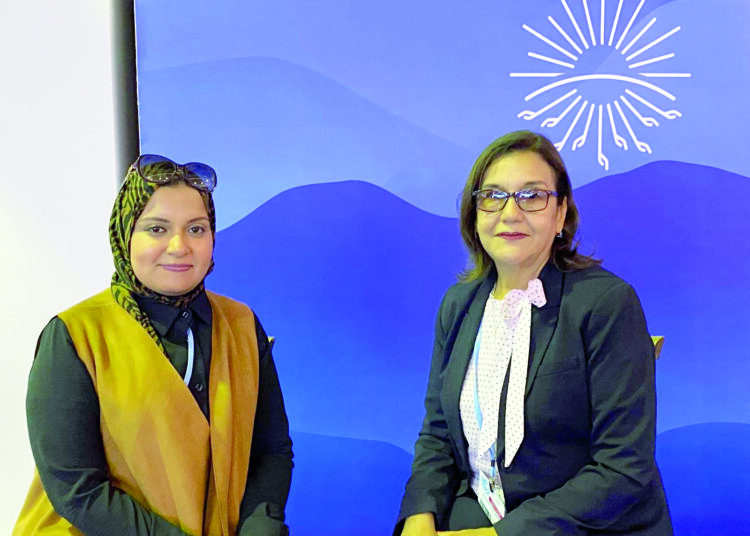Cuba’s agenda for COP27 is – in the first place – consistent with the country’s historical positions. In this regard,Cuban Minister of Science, Technology and Environment Elba Rosa Pérez Montoya told The Egyptian Mail that the country has always defended the inviolability of the Principle of Common but Differentiated Responsibilities, which clearly identifies the responsibility of developed countries for climate change, and the subsequent responsibility to provide means of implementation to the developing world, including financing, technology and contribution to capacity building.
“Another key point in our traditional positions is solidarity. We will always be aligning our positions with island developing countries and in general with the larger group of developing countries, articulated through the G77 and China.
South-South co-operation will continue to be a tool of Cuba’s solidarity in these processes,” she added.
Cuba’s delegation to COP27 will resolutely support the efforts of developing countries to secure the financial mechanisms required to deal with the losses and damages caused by climate change.
“We will advocate for accelerated efforts and more focused discussions for the definition of a new financial target, based on the needs of developing countries.”
Regarding reducing greenhouse gas emissions, consistent with the 1.5 degree target , the minister said that this must occur in a manner consistent with the needs of sustainable economic and social development in our countries.
According to the minister, Cuba is to concentrate on three elements at COP27.
The first is science. All our national efforts have the backing of the scientific community and national institutions. This provides us with a very solid basis because we are designing and implementing actions that apply specifically to our national circumstances, taking into account territorial and local particularities, she explained.
The second point is related to policies. Since 2017, the Cuban Government approved a State Plan for confronting Climate Change known as Tarea Vida (Life Task). The country has certain mechanisms to oversight the progress of its implementation in the main sectors of the economy and in each territory of the country, according to the minister.
The third point is local action. This is a key area in the current implementation stage of the State Plan. “In the first stage of its implementation (2017-2021), we were very focused on the development of national mechanisms, but for the new cycle (2021-2025), we are placing greater emphasis on the participation of local governments, and on the “bottom-up” construction of the agenda for confronting climate change in the country.”
The minister went on to say that There is also insufficient connectivity between the treatment of major global problems, linking climate change to biodiversity or ocean issues, or those linked to unsustainable production and consumption patterns, to cite just a few examples.
All of this requires, in our opinion, a thorough review of the current governance mechanisms. It is clear to us that we need a more transparent and inclusive governance, focusing on the needs of the most vulnerable.
The minister, meanwhile, stressed the importance of turning attention to the implementation of national actions.
“This is the field where the required progress will have to take place in the coming years. Each adaptation action, each measure for cleaner development in terms of emissions, must contribute an element to the global solution and experiences for other actions.”
The Cuban official also referred to the proximity of science, technology and environmental management under the same institutional umbrella as a strength.
While science has provided us with the basis of knowledge on the current and future impacts of climate change in Cuba, we expect technology to provide us with solutions that are appropriate to our national conditions, she added.
On climate finance, Cuba will work on two fronts, international and national.
“In the international sphere, we will act by calling upon developed countries to fulfill their current commitments to provide $100 billion a year for the implementation of adaptation and mitigation measures in developing countries.”
The minister also called for simplifying and streamlining their financing mechanisms, which are currently very complex, time-consuming and cumbersome.
From the national point of view, we have to expand our portfolio of climate projects. Our intention is to have projects linked to all relevant areas of the State Plan to Address Climate Change (Task Life).
We are confident that this new period will bring an increase in the financial resources we will access for climate finance, she concluded.




